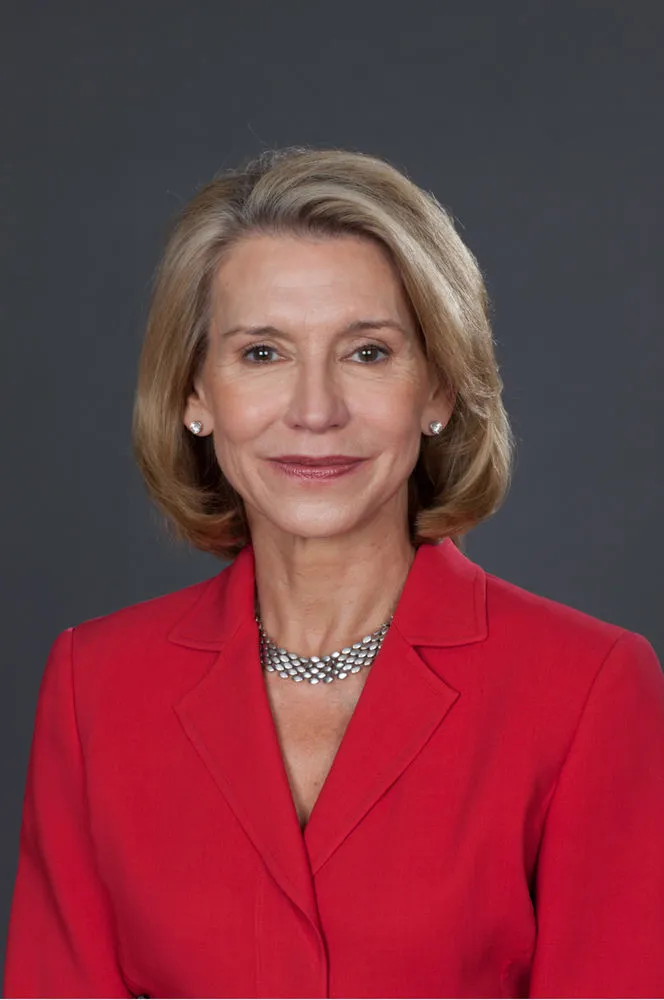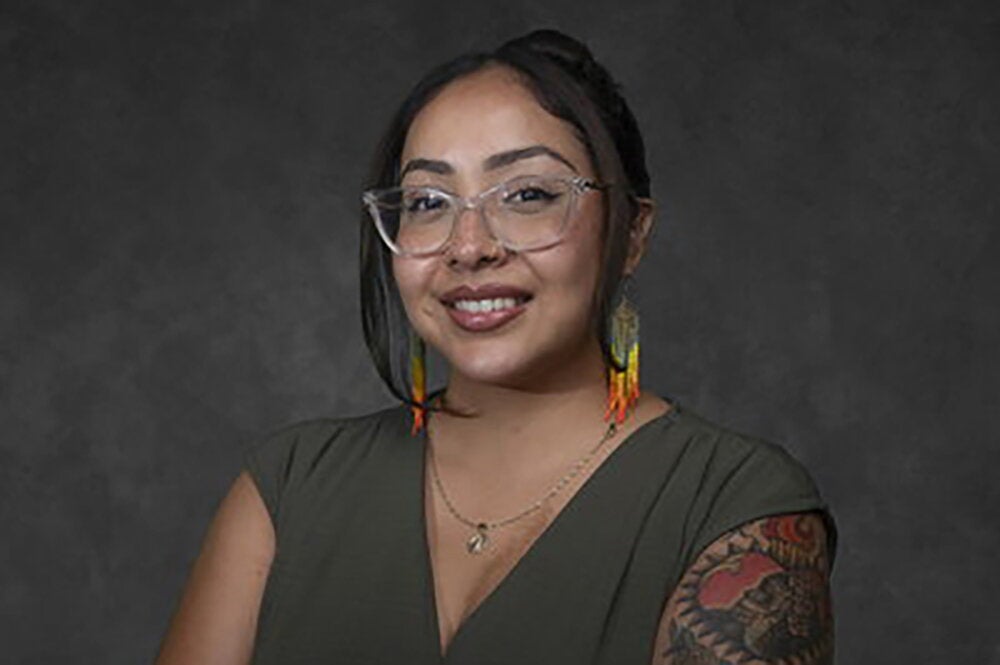
Roxanne Decyk would rather read a Jane Austen novel than a company report, but this English literature major has found her calling in composing corporate strategies.
At 49, Roxanne Decyk (AB, '73, English literature) is among the handful of women who have reached the upper echelons of corporate America. As a senior vice president of corporate affairs and human resources at Shell Oil Company, she oversees all U.S. media relations, communications, advertising, government relations, and human resources for this energy giant. Working Woman and Business Week have both listed Decyk among the top female executives in America. Shell's CEO, Steven L. Miller, describes Decyk as a "creative leader" whose "meteoric career is a model for all women."
Decyk's rapid rise began while she was at UI. She graduated summa cum laude and Bronze Tablet, with dual degrees in English literature and advertising, in just three years. She went on to law school at Marquette University in Milwaukee, from which she graduated first in her class. After three years at one of Wisconsin's largest law firms, she was hired, at the age of 28, by International Harvester to help salvage the struggling farm implements company. Her success in transforming it into Navistar, an international giant in heavy-duty trucks, won accolades from business magazines and caught the attention of Amoco Corporation, which recruited her in 1991 to turn around its transportation fuels and chemical divisions. She left Amoco in 1997 to run her own consulting firm and to work on a PhD in governance at Oxford, which she was pursuing when she was scooped up by Shell in 1999 to lead the creation of their first global strategy.
The similarities between Decyk's career and the companies she has managed are hard to miss—both have involved risk and reinvention. She leapfrogged the corporate ladder, she says, in part because she was willing to take risky jobs. "Companies that are in trouble are more willing to discard the usual order of promotion," she says. Of course, she then maximized those opportunities through her unwavering commitment to excellence. She accepts no substitutes. "To succeed, women, in particular," she says, "must set their expectations high, then exceed them." She also has switched jobs often and sometimes profoundly—to maintain her competitive edge—well before career changes were the norm.
Often praised as a role model for women, Decyk is not entirely comfortable with this label. One reason is that she has mentored men as well as women. Another is that many of the issues she advocates are gender neutral. Her emphasis on team building, and other practices that make the workplace more rewarding results in happy employees and, in turn, competitive companies.
Even as she has climbed the corporate ladder, Decyk never forgot her alma mater. She established a scholarship in the Department of English and returned to campus to lecture and mentor students. As with most of her decisions, her support for liberal arts and sciences is based as much on good sense as on sentiment. Decyk believes that society has swung too far toward specialization. When corporate America is looking around for leaders, she says, it is turning to those who are educated broadly and deeply. "Some of the best lessons in acquiring and keeping power come from studying Shakespeare not organizational psychology," reminds Decyk. "And if you really want to understand the subtleties of human behavior, read Jane Austen."


